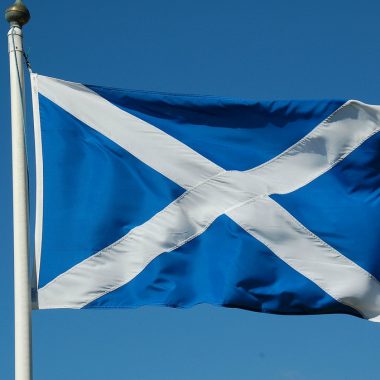How contract and funding issues are impacting Scottish GPs


In a series of articles on the state of general practice in the devolved nations, Katherine Price explores why the relationship between Scotland’s GPs and its Government has worsened in recent years…
The relationship between GPs and the Government in Scotland is ‘probably the most strained it has been since 2016’, according to GPC Scotland chair Dr Andrew Buist.
‘We worked quite well together during the pandemic, but things have been really difficult, increasingly so, over the last eight to 12 months…’
Two major factors behind this are an unexpected spending review late last year, which saw GPs lose out on previously agreed funding, and delays in implementation of the 2018 GMS contract.
Dr Buist says that morale is low and a lot of practices are ‘wobbling’ and reaching their tipping point: ‘People are angry too – they’re angry with the Government. They feel let down.’
An unexpected spending review
The Scottish Government’s emergency budget review in October 2022 saw £5m cut from £30m sustainability funding previously pledged to support practices with winter and Covid pressures. A first instalment of £15m was paid, but the second was cut to £10m. LMCs warned at the time that it could result in patients facing longer waits and would leave staff feeling ‘completely undervalued’.
Meanwhile, £65m was also ‘reprioritised’ from the primary care budget. A spokesperson for the Scottish Government told Pulse that this included savings from the £170m Primary Care Improvement Fund – a fund to support integration authorities, GPs and health boards implement plans to focus on particular policy areas, such as vaccinations and pharmacotherapy.
This ‘reprioritisation’ included a one-off utilisation of reserve funding by integration authorities. But the spokesperson also insisted that the fund had not been cut.
The spokesperson said: ‘We have asked health and social care partnerships (HSCPs) to use existing cash reserves as part of the £170m Primary Care Improvement Fund. It is wise to reinvest this money given the reserves have been steadily accumulating over a number of years, especially at a time of considerable inflation.’
But Dr Buist says that while the money was ‘unspent reserves’, general practice did have plans for it – it was earmarked for multidisciplinary teams – and the Government just ‘wiped it out’.
Joint chair for the Scotland RCGP council Dr Chris Williams adds that the spending review has ‘put the most strain’ on the working relationship between GPs and the Government.
‘This has hadn’t been something that we or they had been expecting and the situation with the massive uprise in inflationary pressures, [and] the combination of that [with] the switch from Covid funding arrangements to a post-Covid settlement with the Westminster administration, that suddenly introduced quite significant and imminent financial challenges,’ he says.
He adds that the Government and GPs had needed to press pause on some work that had not yet been set in motion, which was ‘the real unfortunate casualty’ of the spending review.
The 2018 Scottish GMS Contract
The other issue rumbling on in the background is delays to the implementation of the 2018 Scottish GMS contract. It aimed to reduce GP workload and initially had a three-year implementation period, but in 2020 some deadlines were extended. This included the removal of services from general practice to become the responsibility of multi-disciplinary teams employed by NHS boards.
Vaccinations were to be transferred to health boards by October 2021 – six months after the original date – and other services, such as pharmacotherapy and community and treatment and care would have to be in place by 2022-23, a year behind what was originally proposed in 2018.
Dr Buist says that the vaccination programmes have been successfully transferred out of nearly all general practice in Scotland except for some of the smaller, rural practices – but the GPC remains ‘in dispute’ with the Government about the transfer of the other two services.
‘We got the regulations in place that these would become health board responsibilities but they’re dragging their heels over the directions in place that will define what is actually included,’ he says.
He also fears that some ministers are ‘not minded’ to put these directions in place.
Looking ahead, Dr Buist says it’s ‘very grim times’ for general practice with GPs struggling and the handing back of contracts becoming a regular occurrence. But the national attention still seems to be elsewhere: ‘The Government and our health boards, their focus is almost entirely on Accident & Emergency and hospitals. They don’t seem interested in what’s going on in general practice.’
Photo credit James Stringer http://bit.ly/1NaOFDZ









